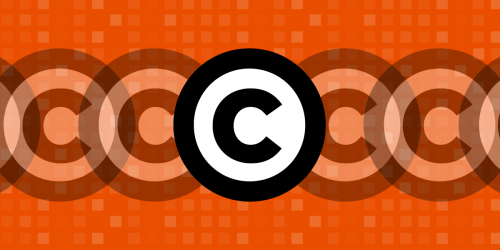Copyright law is supposed to promote creativity, not stamp out criticism. Too often, copyright owners forget that – especially when they have a convenient takedown tool like the Digital Millennium Copyright Act (DMCA).
EFF is happy to remind them – as we did this month on behalf of Internet creator Lindsay Ellis. Ellis had posted a video about a copyright dispute between authors in a very particular fandom niche: the Omegaverse realm of wolf-kink erotica. The video tells the story of that dispute in gory and hilarious detail, while breaking down the legal issues and proceedings along the way. Techdirt called it “truly amazing.” We agree. But feel free to watch “Into the Omegaverse: How a Fanfic Trope Landed in Federal Court,” and decide for yourself.
The dispute described in the video began with a series of takedown notices to online platforms with highly dubious allegations of copyright infringement. According to these, one Omegaverse author, Zoey Ellis (no relation) had infringed the copyright of another, Addison Cain, by copying common thematic aspects of characters in the Omegaverse genre, i.e., tropes. As Ellis’ video explains, these themes not only predate Cain’s works, but are uncopyrightable as a matter of law. Further litigation ensued, and Ellis’ video explains what happened and the opinions she formed based on the publicly available records of those proceedings. Some of those opinions are scathingly critical of Ms. Cain. But the First Amendment protects scathing criticism. So does copyright law: criticism and parody are classic examples of fair use that are authorized by law. Still, as we have written many times, DMCA abuse targeting such fair uses remains a pervasive and persistent problem.
Nevertheless, it didn’t take long for Cain to send (through counsel) outlandish allegations of copyright infringement and defamation. Soon after, Patreon and YouTube received DMCA notices from email addresses associated with Cain that raised the same allegations.
That’s when EFF stepped in. The video is a classic fair use. It uses a relatively small amount of a copyrighted work for purposes of criticism and parody in an hour-long video that consists overwhelmingly of Ellis’ original content. In short, the copyright claims were deficient as a matter of law.
The defamation claims were also deficient, but their presence alone was cause for concern: defamation claims have no place in a DMCA notice. If you want defamatory content taken down, you should seek a court order and satisfy the First Amendment’s rigorous requirements. Platform providers should be extremely skeptical of DMCA notices that include such claims and examine them carefully.
We explained these points in a letter to Cain’s counsel. We hoped the reminder would be well-taken. We were wrong. In response, Cain’s counsel accused EFF of colluding with the Organization for Transformative Works to undermine her client and demanded apologies from both EFF and Ellis.
As we explain in today’s response, that’s not going to happen. EFF has fought for years to protect the rights of content creators like Lindsay Ellis and we will not apologize for our commitment to this work. Nor will Ellis apologize for exercising her right to speak critically about public figures and their work. It’s past time to put an end to this entire matter.










